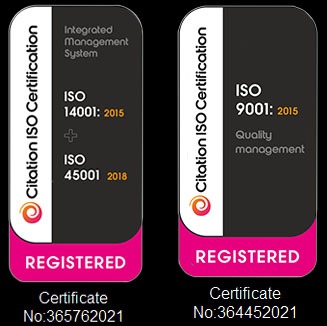
CeraPhi Energy supporting Antarctic Quest 21
22 November 2021
In 2012, Paul Hart (Lt Cdr RNR) Polar Maritime Survival Instructor, led a small team to cross the Antarctic Peninsula from west to east and back, undertaking scientific research to celebrate the life and achievements of Sir Ernest Shackleton .
The intention of Antarctic Quest 21 is to continue the science and exploration programme on the Antarctic Peninsula by travelling over and then along the spine of the Antarctic Peninsula.
In the 201st Anniversary year of the discovery of Antarctica, the team will cross the Forbidden Plateau from Portal Point to Foyn Point. At Foyn Point they will put in place and start scientific equipment that will transmit data used in climate research in real time. The team will then travel down the spine of the Peninsula and continue their data gathering for scientific research of climate change, meteorology, geology and glaciology. Of special importance will be the team’s collection of samples research into microplastics, metal and nutrient content of the snow on the Peninsula, revealing just how we are affecting the most remote areas on the planet.
Furthermore, as the early pioneers to Antarctica, the team want to inform, educate and inspire the general public on the subject of Antarctica. To these ends, a comprehensive educational outreach programme will be developed, working with schools, universities and the general public to broaden knowledge and understanding about Antarctica.
A Commemoration Service for Sir Ernest Shackleton on 5 January 2022 will follow the lines of a naval Service based on Shackleton being a member of the Royal Naval Reserve.
As was planned for Shackleton’s Quest Expedition, the team of Antarctic Quest 21 will conduct the science projects:
Gather snow samples from remote locations to measure microplastic contamination, metal and nutrient concentrations in the snowpack.
Undertake Magnetotelluric measurements to determine the subsurface conductivity and composition of the Antarctic Peninsula.
Measure UVB radiation dose on the ground to establish the effect of ozone depletion on harmful radiation reaching the surface of Earth.
Emplace and set to work a GPS system to measure movement of the Antarctic Peninsula.
Measure snow deposition rates to contribute to models that predict sea-level rise as a result of climate change.
Undertake meteorological observations to identify changing weather patterns and ground-truth remote sensing measurements.
Measure metallic contamination of the snow to determine metal fall out into the Southern Ocean and its impact on bio-mass in the water column.
Join us in supporting this historic expedition of Science, Education and Commemoration by donating here : https://lnkd.in/dZmP9Pd




